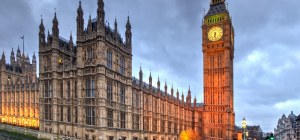69: Prorogue parliament to secure a ‘no deal’ Brexit – people get ready

Aaron Nelson Legal Director
The Tory leadership candidates, Boris Johnson and Jeremy Hunt, have each insisted that the UK can handle a ‘no deal’ Brexit on 31 October, with Johnson, the front-runner, declining to rule out proroguing Parliament in order to achieve it. Could he do so? And is the UK ready for a ‘no deal’ Brexit?
What is prorogation?
Prorogation marks the end of a parliamentary session. It is the formal name given to the period between the end of a session of Parliament and the State Opening of Parliament that begins the next session. The parliamentary session may also be prorogued before Parliament is dissolved (for a General Election).
The power to prorogue Parliament falls within the royal prerogative (it is expressly preserved by s6(1) of the Fixed Term Parliaments Act 2011), so the Queen formally prorogues Parliament on the advice of the Privy Council (in practice the Government). It usually takes the form of an announcement, on behalf of the Queen, read in the House of Lords, with the Speaker of the House of Commons and MPs in attendance. The same announcement is then read out by the Speaker in the Commons. Following this, the House of Commons and House of Lords are officially ‘prorogued’ and will not meet again until the State Opening of Parliament, when Parliament reconvenes and the Queen’s Speech sets out the business for the next session.
Why is prorogation being suggested?
The new PM could argue – with some justification – that prorogation of Parliament is overdue. A parliamentary session normally lasts a year (usually late May to early April), but the current session has been going for almost two years (since the 2017 election) as it was extended to tackle the legislation needed for Brexit. The current session is now the longest session in Parliament since the 1800s, leading to allegations that it is a ‘zombie Parliament’. A new PM could argue that he has a new legislative programme which necessitates a Queen’s Speech.
But a more controversial proposal is that, to facilitate Brexit, the PM should prorogue Parliament prior to 31 October. As neatly summarised by Tory Brexiteer Sir Edward Leigh in a recent series of tweets:
‘There are only two choices given the EU won’t change the deal and there’s no chance of parliament passing it. One is cancel Brexit: an intolerable denial of democracy. The other is leave without a deal on WTO terms on 31 October. But MPs, assisted by the Speaker, will block this. Solution: End this failed session immediately within a few hours of a new government and prorogue Parliament. Leave the EU on 31 October.’
In other words, send MPs away in the run-up to 31 October so that they cannot do anything in the Commons to prevent a ‘no deal’ Brexit.
Would that be controversial?
In a word, yes.
There is historical precedent for the tactical use of prorogation to overcome Parliamentary deadlock. In 1948, the Parliament Bill to reduce the power of the Lords was being blocked by peers, but powers allowing the Government to override the Lords could only be used if there had been a delay to the Bill over three ‘sessions’. A special short session of 10 days was therefore arranged to ensure the powers could be used.
The difference in the case of Brexit is that the Government would be using the power not only to override the Lords, but also the expressed will of the democratically-elected Commons. Dominic Grieve MP said:
‘… [T]he idea that it is constitutionally proper to prorogue Parliament as a device for bringing about a no-deal Brexit is outrageous. I have never come across a more extraordinary suggestion… If you decide that parliament is an inconvenience, when in fact it is the place where democratic legitimacy lies in our constitution and therefore it’s acceptable to get rid of it for a period because it might otherwise prevent you from doing something which parliament would prevent, then it’s the end of democracy.’
The Speaker, John Bercow, has also stated that he will not permit Parliament to be prorogued in such a way (although it is not within his gift to prevent it), and former PM John Major, speaking on R4’s Today, stated that he would seek a judicial review to stop Johnson proroguing parliament to facilitate a no-deal Brexit:
‘If that were to happen, I think there would be a queue of people who would seek judicial review. The Queen’s decision cannot be challenged in law. But the prime minister’s advice to the Queen can, I believe, be challenged in law and I for one would be prepared to go and seek judicial review to prevent parliament being bypassed… Let’s strip away the jargon of proroguing and contemplate what this actually means. What it means is that a prime minister – Prime Minister Johnson, presumably – because he cannot persuade parliament to agree with his policy, will close down parliament so that he can bypass it until his policy comes into operation… I cannot imagine how anyone could conceivably think that is right…’
Dr Sam Fowles has similarly argued, here, that a judicial review of the PM’s advice might form a basis for an action for review, and might be successful if the court considered the underlying reason for that advice was to frustrate the will of Parliament. Using the prerogative to frustrate the will of Parliament was held to be unlawful in R (Fire Brigades Union et al) v Secretary of State for the Home Department [1995] 2 AC 513.
Fowles also argues that, while Bancoult (No. 2) [2008] UKHL 61 established that ‘personal’ prerogative powers, such as the power to prorogue Parliament, are excluded from judicial review, in R (Miller) v Secretary of State for Exiting the European Union [2017] UKSC 5, the Supreme Court held that a court may determine the scope of the prerogative power (even where that power is one of those excluded from review). So a court could determine that to prorogue Parliament so as to prevent Parliament from exercising control over Brexit was outside the scope of the prerogative power.
Could a sitting Parliament stop a ‘no deal’ Brexit?
MPs have voted repeatedly against a ‘no deal’ exit (in January, March and April of this year) and, most clearly, passing the European Union (Withdrawal) (No.5) Act 2019, in order to avoid a ‘no deal’ exit on 12 April. So the ‘will’ of Parliament would seem to be clear: it’s a ‘no’ to ‘no deal’.
Nevertheless, some doubt has been expressed as to whether the avenues of opposition used to date would be open to MPs in the run up to 31 October. For example:
- passing backbench or Opposition Day motions opposing no deal, would be unavailable if the new prime minister avoided giving any time to the Opposition ahead of the Article 50 deadline;
- applying to the Speaker for emergency debates under Standing Order 24 would be ineffective because, even if the Speaker could grant such a debate, these motions are in neutral terms (which means they are unamendable) and are not legally binding;
- passing another Act on the basis that EUWA No.5 was only possible because EUWA 2018 provided that, if Parliament rejected the Government’s deal (as it did three times) then MPs would be able to vote on an amendable motion ‘considering’ the Prime Minister’s next steps, and that gave the Commons a chance to shape both the timetable and the content of the next steps. Through this process the Commons was able to take control briefly of the parliamentary timetable and passed the bill. That avenue does not now exist;
- voting against the Government’s programme, if the Government didn’t bring any major new bills before the House; and
- even a vote of no confidence in the Government, precipitating a General Election, would not prevent a ‘no deal’ exit unless a new Government were in place to ask for an extension before 31 October.
MPs are also resorting to novel means to try to prevent Parliament from being prorogued. Former Attorney General and Tory MP Dominic Grieve was successful yesterday in having Northern Ireland Bill amended (his amendment passing by one vote) to require the Government to produce fortnightly reports to Parliament from October until December (preventing it from being prorogued) on the progress towards restoring the power sharing arrangements in Northern Ireland. He hopes that a further amendment, providing expressly that MPs should be recalled were Parliament prorogued, will be added in the Lords.
Is the UK ready for ‘no deal’?
Warnings of the negative impacts of ‘no deal’ abound and (unsurprisingly) they are more pronounced for the UK than for the EU27.
First, in general economic terms, for a no-deal scenario in which the United Kingdom is subject to World Trade Organization ‘Most Favoured Nation’ (MFN) rules, the IMF World Economic Outlook (2019) estimates a short-term reduction for UK GDP of between 3.7 and 4.9%, and a long-term negative impact of almost 3%. The Bank of England has estimated a reduction of between 4.75 and 7.75% over five years, and the UK Government a long-term impact of 7.7%. This compares unfavourably to the average short and long-term impact on the EU27 Member States, estimated by the IMF to be well below 1%, and the predictions for the UK post-Brexit under a free trade or other withdrawal agreement.
Second, there are concerns about short-term disruption at the UK’s borders. Karen Wheeler, ex-director general for border co-ordination at HM Revenue and Customs, and so in charge of Brexit border plans, said recently:
‘I think we felt like we had done everything that we could to mitigate as far as we could, but there were some areas of no-deal where the consequences did feel particularly difficult. Goods and trade at the Channel and Northern Ireland… frankly, you can’t mitigate those risks away and all you can do is cope with the consequences. When government says it is ready as it can be it is mostly saying we have done everything that we can to develop the processes, communicate the processes; develop the systems, communicate the systems; put the arrangements in place so that the users and operators of the border can work. But what we can’t do is ensure that every other aspect will work, and every other aspect of industry will be prepared. What that means is that there are consequences if traders and businesses are not ready, because there will be problems for them at the border if they are not…’
The Chief Executives of Sainsbury’s, Tesco and Asda have recently indicated that that a Brexit day of 31 October is ‘about as bad as it gets’ for retailers to stockpile for a no-deal Brexit, because the supply network will be full of Christmas stock.
Third, Wheeler also said that the suggestion that advances in technology would provide a solution to the Northern Ireland border (in the absence of a withdrawal agreement) was wrong:
‘[I]t is not at all clear what arrangements it would put in place [for the land border] and therein lies part of the problem in Northern Ireland. Without knowing what the arrangements are on the other side of the border, it’s extremely difficult for [traders] to prepare. There will be tariff barriers as well as regulatory control barriers, but they don’t know how they can prepare for those… Technology alone is not going to solve that border problem. It needs to be around other arrangements as well. It has to be done in a way that is going to work in both directions, on both sides of the border, which is clearly extremely difficult to try and achieve when we’re not able to discuss these things with Irish colleagues. And in any case the technology is not in place anytime soon.’
In June, the European Commission adopted its Fifth Communication Regarding Preparations for a No-Deal Brexit, in which it stated that the scenario of a No-Deal Brexit remained a possible, but undesirable, outcome. It urged all stakeholders to take advantage of the extra time to ensure that they have taken all necessary measures to prepare for Brexit.
The Commission itself had:
- made 19 legislative proposals to prepare for the United Kingdom’s withdrawal, covering areas from transport, to social security coordination, to Erasmus+, and to the visa regime applicable to UK nationals – these have now been adopted by the European Parliament and the Council;
- adopted 63 non-legislative acts in a number of policy areas;
- adopted 16 non-legislative contingency acts under the EU sanitary and phytosanitary legislation on the basis of assurances given by the United Kingdom (while these are obsolete due to the extension, the Commission considers they can be re-adopted if the United Kingdom continues to provide the necessary assurances for a new exit date); and
- published 93 notices which continue to provide guidance to stakeholders and authorities in numerous areas affected by the withdrawal.
The EC indicated that particular vigilance was needed over the next few months in respect of citizens’ residence and social security entitlements; medicinal products, medical devices and chemical substances; customs, indirect taxation and border posts; transport; fishing and financial services.
‘People get ready… all you need is faith’ (People Get Ready, Curtis Mayfield and the Impressions)
Enjoying the blog? Why not try the Brexit Blog playlist on Spotify.









